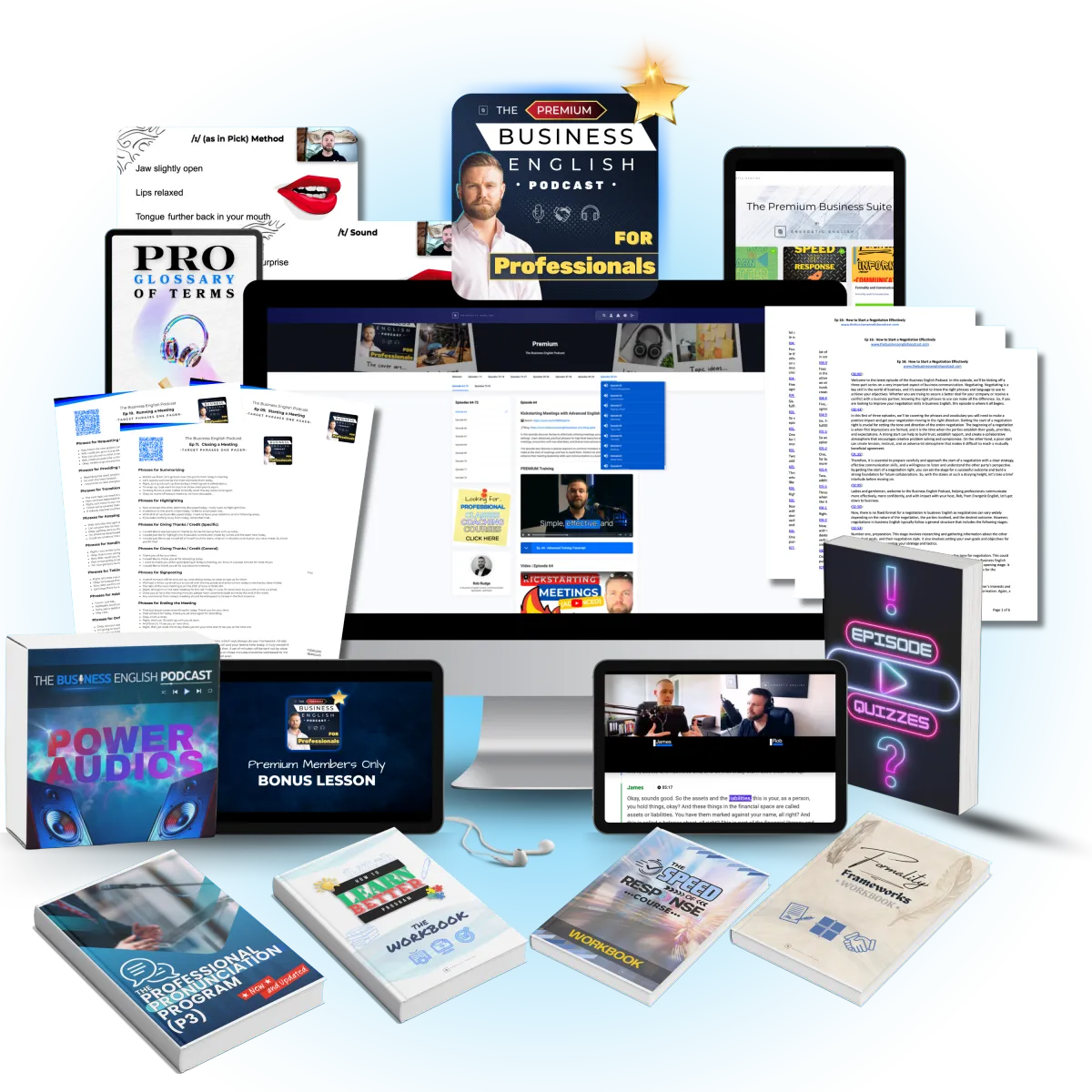The Shocking Power Of 'What If' In Business
6 Dec 24
Master the Second Conditional to Sound Professional at Work
Hypothetical situations are everywhere in the business world: brainstorming sessions, negotiations, interviews, or even casual team discussions.
Yet, for non-native English speakers, expressing these "what if" scenarios confidently can feel like a minefield.
That's where mastering the second conditional comes in.
In this blog post, we’ll explore why the second conditional is a game-changer for professional communication, how you can start using it, and common pitfalls to avoid.
And if you're serious about sharpening your Business English, we’ve got exclusive premium content waiting for you!
Why the Second Conditional is a Key Skill in Business English
The second conditional is your go-to for discussing hypothetical situations and exploring potential outcomes.
It helps you sound polished and professional while making suggestions, proposing strategies, or envisioning possibilities.
Real-World Business Use Cases:
Team Meetings:
“If we allocated more resources, we could meet our target.”
Negotiations:
“If you offered a discount, we might increase our order.”
Interviews:
“If I joined your team, I could bring a fresh perspective.”
This structure lets you express your ideas clearly and persuasively, making you an invaluable contributor in professional settings.
The Structure: Simple Yet Powerful
At its core, the second conditional follows this structure:
If + past simple, then would + base verb
Example:
“If I had more data, I would make a stronger case.”
This straightforward formula allows you to articulate hypothetical ideas with ease.
The past simple in the 'if' clause sets up the condition, and 'would' in the main clause explains the result.
Want to dive deeper?
The podcast episode explores advanced variations, like using "might" or "could" for softer suggestions or adding a formal twist with "were to."
Phrases to Get You Started
Here are a few must-know phrases from the episode to practice:
“If we streamlined our processes, we could increase efficiency.”
“If I knew more about the client’s preferences, I would tailor the proposal accordingly.”
“If they played their cards right, they might corner the market.”
Each of these examples is practical, versatile, and easy to incorporate into your daily work conversations.
For more advanced or colloquial variations of these phrases, check out the premium section of the podcast.
Avoid These Common Pitfalls
Even professionals often make mistakes with the second conditional. Here are two errors to watch out for:
Mixing Tenses:
Incorrect: “If I will have time, I would finish the report.”
Correct: “If I had time, I would finish the report.”
Overcomplicating Sentences:
Avoid adding unnecessary details. Instead of:
“If we were to allocate additional resources to this ongoing project, it’s possible we might hit our targets sooner.”
Try:
“If we allocated more resources, we could hit our targets sooner.”
Clear, concise communication always wins in professional environments.
Take It Further with BEP PREMIUM
If you’re ready to take your second conditional skills to the next level, the Business English Podcast offers an exclusive premium segment for subscribers. In this bonus content, you’ll:
Learn advanced variations of the second conditional, including nuanced and colloquial phrases.
Practice with tailored examples for high-level business scenarios.
Discover tips to fine-tune your tone and delivery for different professional contexts.
Here’s a sneak peek at a premium phrase:
“If we were to revise our strategy, we might unlock untapped opportunities.”
These exclusive insights are designed to help you stand out in meetings, interviews, and beyond.
Ready to Sound More Professional?
The second conditional isn’t just a grammatical structure—it’s a tool that can transform the way you communicate at work.
Mastering it will help you express your ideas clearly, impress colleagues, and open doors to new opportunities.
Listen to the full podcast episode now to unlock the power of the second conditional.
And for those serious about making rapid progress, the premium segment offers an even deeper dive into advanced Business English skills.
Don’t miss out—your professional confidence starts here!
Want More From The Show?
TRANSCRIPTS, PRONUNCIATION SUPPORT, ONE-PAGE PDFs, QUIZZES...?

© Copyrights by The Business English Podcast. All Rights Reserved. | Terms & Conditions | Privacy Policy
